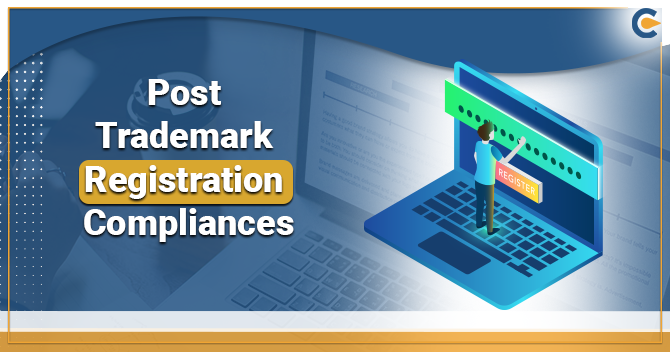A trademark is a brand or a sign that can be visually depicted and can distinguish the products, services, or commodities of one company from those of other companies. A trademark includes things like how products are packed, their patterns, designs, colours, and their forms. The nature of a startup company is represented by its name, logo, product, or service, which also serves as a component of its trademark. Therefore, it is crucial for any new business to file a trademark to safeguard its identity from the unauthorised use of its brand by other parties. Scroll down to check more about Trademark Licensing for Startups.
What is Trademark Licensing?
The term “Trademark Licensing” is not defined in the Trademarks Act of 1999[1]. Moreover, a licence, in general, is a person’s permission to carry out a deed. Furthermore, a trademark permit is nothing more than the brand owner’s approval of a third party. This kind of licence is granted in return for a fee.
Who Is Qualified To Grant Trademark Licenses?
Only the proprietor or authorised holder of the brand may grant a trademark licence. It would be suitable to note here that Indian law permits transfers of both recognised and unregistered property. A trademark can be transferred using either a licence or a grant.
According to Section 48 of the Trademark Act, 1999, an individual other than the registered owner of a trademark may be listed as a registered user. As a result, if both parties follow the necessary guidelines, this act’s regulations may allow for the use of a registered brand.
Importance of Trademark Registration
Registration of a trademark is important because of the following reasons:
- A trademark makes you and your goods or services more recognisable to customers.
- It aids in swaying your customers and sets you apart from your well-established rivals.
- In order to improve the brand image, it encourages startups to offer the finest product and uphold their quality standards.
- As your company grows and develops, it strengthens your competitive edge.
- Using a unique logo or trademark to market your work, image, business, or messages across countries, regions, or languages is optimal.
- Patents can increase your online visibility and search engine rating. It assists in increasing business.
- Trademark protection is generally less costly than other intellectual property rights because it provides longer-term protection after registration.
- The Startup India Action Plan places a special emphasis on making brand registration easier, which will aid startups in navigating the legal complexities of submitting IP applications and registration.
What is the importance of Trademark Licensing for Startups?
The provision of property rights over a brand makes Trademark Licensing for startups very important. It guarantees total legal control over it and guards your trademarks against any unauthorised access or potential misuse. With copyright registration, you can defend your business against deceit and obnoxious competitors by taking legal action against them.
Additionally, registration enables startups to use and share their brand across all platforms openly. It assists new companies in structuring their legal structures and managing their operations effectively. Startups can make use of their brand to draw customers’ attention and keep the interest of their target market. A potential trademark that has been filed ensures your position in the industry and allows you to compete with long-standing rivals.
Startups with registered brands can carry out the deal easily if they decide to sell their business concept or new endeavour. In order to ensure the security of their future rights, sellers also demand that purchasers register their brand.
Benefits of Trademark Licensing For Startups
Trademark licensing is crucial for startups. Here are a few benefits of trademark licensing for startups:
- Monetary Gain: Both parties stand to profit monetarily because the trademark is extensively used for business benefit, and the owner is paid royalties. The licensor, who, for instance, was unable to capitalise on his brand due to a lack of resources or exposure, is now able to use the licensee’s resources and boost his revenues by giving the licence to the licensee. A part of the income is also given to the licensee.
- Expansion of The Company: The brand owner’s company has expanded and now has a presence in more places. The business is no longer constrained to a particular area, and the licensees can now make use of their distribution knowledge to expand the business.
- Increasing Awareness of The Company: In previously undiscovered regions, the trademark gains popularity. The licensee is free to use his means to promote broadly.
- The Use Of Trademarks Is Increasing: The trademark becomes more well-known as more people and customers become familiar with it. Increasing sales raises money and makes it easier to keep leasing the brand.
- Distribution of Work: In a way, the Licensee becomes a collaborator with the licensor. Because the licensee is equally accountable for upholding the standard of the products he produces using the trademark, the workload for the licensee is reduced, and he need not stress about the quality of the goods and services.
How to Obtain a Trademark License in India?
The trademark registrar must receive a written application on Form TM-U from both the registered proprietor or licensee and the registered user or licensee, along with the accompanying materials:
- A correctly certified copy of the contract or written licence agreement describing the allowed use of the planned trademark between the registered owner or licensee and the proposed registered user or licensee;
- An affidavit delivered to the location where registration is to take place, signed by the registered owner or licensee, outlining the relationship between the registered owner or licensee and the prospective registered user or licensee, the goods or services for which registration is being considered, and any restrictions or conditions that may be suggested regarding the characteristics of the goods or services.
- A duly executed power of attorney for agents (if any).
- Additional proof or paperwork that the Trademark Registry may require.
The potential Licensee or Registered User is registered with respect to the products or services for which they are pleased after the Trademark Registrar is satisfied with the application and the accompanying paperwork. The date the authorised user’s application was filed must be listed in the Trademark Registry record. The records will be released in the Journal within two months of the date of trademark filing.
The Trademark Registrar must give notification to additional Licensees or registered users of the planned Trademarks in the way advised for such Licensee’s registration (if any). In light of this, the Trademark Registrar is required to act upon a request from the petitioner to ensure that the details given for the application under the Section, aside from information entered into the Trademark Register, are kept private from competitors or business rivals.
Conclusion
It has become very important to get Trademark Licensing for Startups to create its own market identity and help people trust their business. Moreover, it is always advised that a startup must consult a trademark attorney before starting the trademark procedure as he will understand the nature of the startup, guide the owners accordingly, and help them complete the trademark procedure.
Also Read:
Online Trademark Registration: A Detailed Guide
Process Of Trademark Registration: Step By Step Guide
Navigating Trademark Application Denial: A Guide To Filing An Appeal











